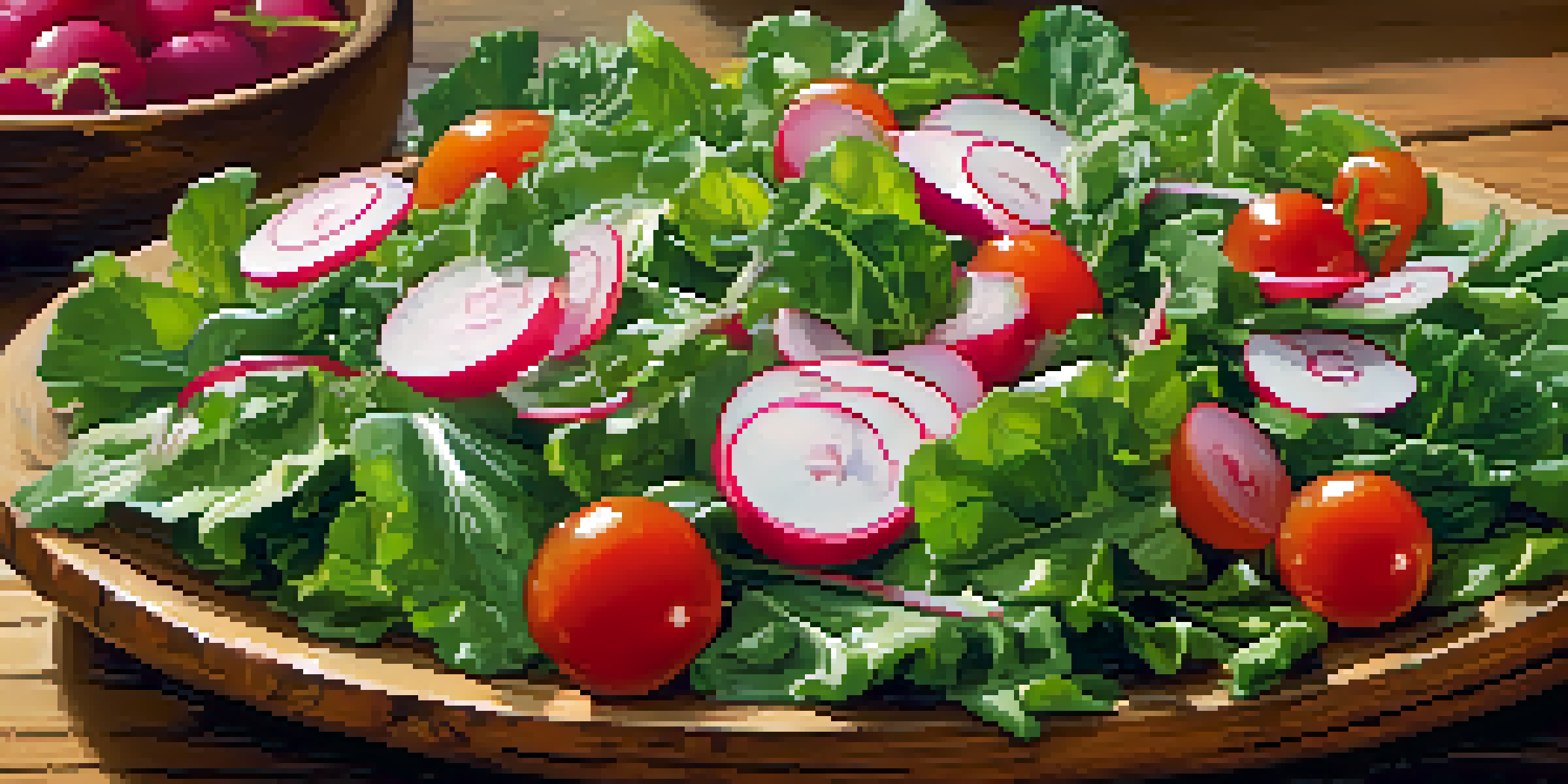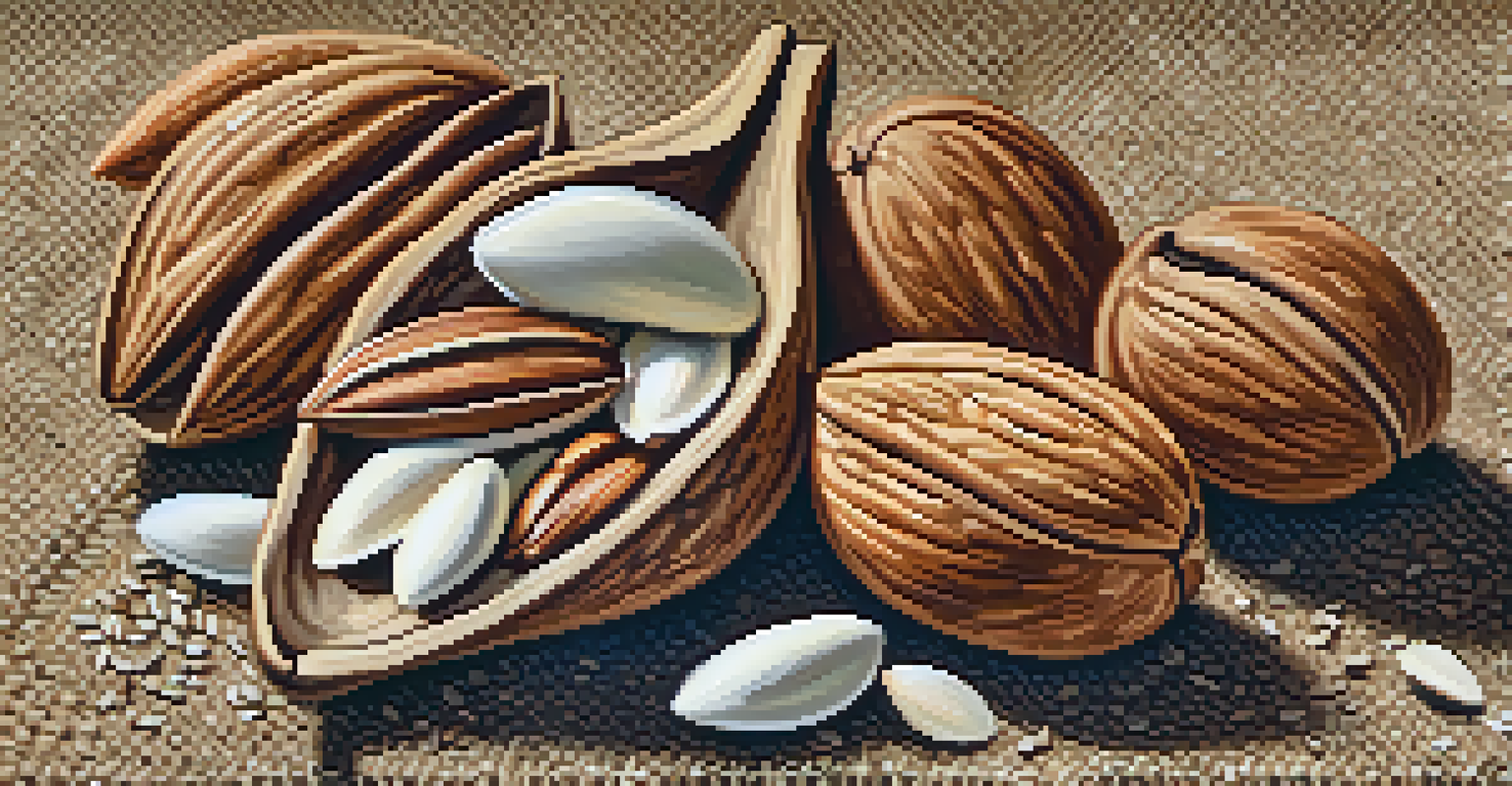Nutrient-Dense Vegan Foods for Optimal Energy and Vitality

Understanding Nutrient Density in Vegan Diets
Nutrient density refers to the amount of essential nutrients a food contains relative to its calorie content. In a vegan diet, focusing on nutrient-dense foods means selecting items that provide vitamins, minerals, and antioxidants without excess calories. This approach is crucial for maintaining energy levels and overall health, especially when avoiding animal products.
Let food be thy medicine and medicine be thy food.
For example, leafy greens like kale and spinach are packed with nutrients such as iron, calcium, and vitamins A and K, yet they are low in calories. Incorporating these foods into your meals can help you feel fuller without the extra calories, making it easier to manage your weight and energy levels. A nutrient-dense diet can also support your immune system and improve your vitality.
By prioritizing nutrient-dense foods, you can ensure that your body gets the essential nutrients it needs to thrive. This not only enhances your energy but also supports your long-term health. So, let’s explore some of the top nutrient-dense vegan foods that can elevate your energy and vitality.
Greens: The Powerhouses of Nutrients
When it comes to nutrient density, leafy greens are often at the top of the list. Vegetables like kale, spinach, and Swiss chard are rich in vitamins A, C, and K, as well as minerals like iron and calcium. They are also high in fiber, which aids digestion and helps maintain steady energy levels throughout the day.

Incorporating greens into your meals doesn't have to be boring. You can whip up a colorful salad, add them to smoothies, or sauté them with garlic for a delicious side dish. The versatility of greens makes it easy to increase your nutrient intake without sacrificing flavor or enjoyment.
Nutrient Density Fuels Health
Focusing on nutrient-dense vegan foods ensures you get essential vitamins and minerals without excess calories.
Moreover, these greens are low in calories, allowing you to consume large portions without the risk of overeating. By making leafy greens a staple in your diet, you're setting the foundation for sustained energy and vitality.
Legumes: A Protein-Packed Energy Source
Legumes, such as lentils, chickpeas, and black beans, are not only rich in protein but also packed with essential nutrients. They are an excellent source of fiber, which helps stabilize blood sugar levels and provides a slow release of energy. This makes them a fantastic choice for maintaining energy throughout the day.
The greatest wealth is health.
For instance, a hearty lentil soup can be both comforting and energizing, providing a wealth of nutrients while keeping you full. Similarly, chickpeas can be roasted for a crunchy snack or blended into hummus, making them both versatile and delicious.
Including a variety of legumes in your meals can help meet your protein needs without the saturated fats found in some animal products. This way, you not only fuel your body with energy but also promote overall health and vitality.
Nuts and Seeds: Small But Mighty Nutrient Sources
Nuts and seeds are often overlooked, but they are powerhouses of nutrients that can boost your energy significantly. Almonds, chia seeds, and flaxseeds are rich in healthy fats, protein, and essential vitamins and minerals. They also contain omega-3 fatty acids, which are known to support heart health and cognitive function.
For example, a handful of almonds can be a great snack to keep your energy levels up during the day. Chia seeds can be added to smoothies or oatmeal, providing a boost of fiber and protein. The small size of these foods belies their incredible nutrient density, making them an essential part of a vegan diet.
Leafy Greens Boost Energy
Incorporating leafy greens like kale and spinach into your diet provides vital nutrients while keeping calorie intake low.
Incorporating a variety of nuts and seeds into your daily routine can help satisfy your cravings while providing essential nutrients for vitality. Just be mindful of portion sizes, as they are calorie-dense, but their benefits far outweigh the drawbacks.
Whole Grains: Sustained Energy for Active Lifestyles
Whole grains like quinoa, brown rice, and oats are fantastic sources of complex carbohydrates, which provide sustained energy. Unlike refined grains, whole grains retain their natural nutrients, including fiber, B vitamins, and antioxidants. This makes them a better choice for those looking to maintain energy levels throughout the day.
For instance, starting your day with a warm bowl of oatmeal topped with fruits and nuts can set a positive tone for your energy levels. Quinoa, often considered a superfood, is not only protein-rich but also provides a complete amino acid profile, making it an excellent choice for vegans.
By incorporating whole grains into your meals, you can ensure that your body receives the energy it needs for daily activities. These nutrient-dense foods also help keep you feeling full and satisfied, reducing the temptation to snack on less healthy options.
Fruits: Nature's Sweet Energy Boosters
Fruits are not just delicious; they are also packed with essential vitamins, minerals, and natural sugars that can give you a quick energy boost. Foods like bananas, berries, and oranges are rich in antioxidants and phytochemicals that promote overall health. They also provide hydration, which is crucial for maintaining energy levels.
For example, a banana is a perfect pre-workout snack, offering a quick source of energy due to its natural sugars and potassium content. Berries, on the other hand, are low in calories but high in fiber and vitamins, making them an excellent choice for a healthy dessert or snack.
Legumes Provide Sustained Energy
Legumes such as lentils and chickpeas are rich in protein and fiber, offering a steady release of energy throughout the day.
By including a variety of fruits in your diet, you can enjoy a spectrum of flavors while boosting your nutrient intake. These natural energy boosters can satisfy sweet cravings without the downsides of processed sugars, helping you maintain vitality throughout the day.
Fermented Foods: Gut Health Equals Energy
Fermented foods such as kimchi, sauerkraut, and plant-based yogurt play a crucial role in gut health. A healthy gut microbiome is essential for nutrient absorption and overall energy levels. By incorporating these foods into your diet, you can improve digestion and enhance your body's ability to extract energy from the nutrients you consume.
For example, a serving of kimchi can add a spicy kick to your meals while providing beneficial probiotics. Similarly, plant-based yogurt can be enjoyed with fruits or granola for a nutrient-rich breakfast option that supports gut health.

Focusing on gut health through fermented foods can lead to increased energy levels and improved vitality. A happy gut means better digestion, which translates to more energy available for your daily activities.